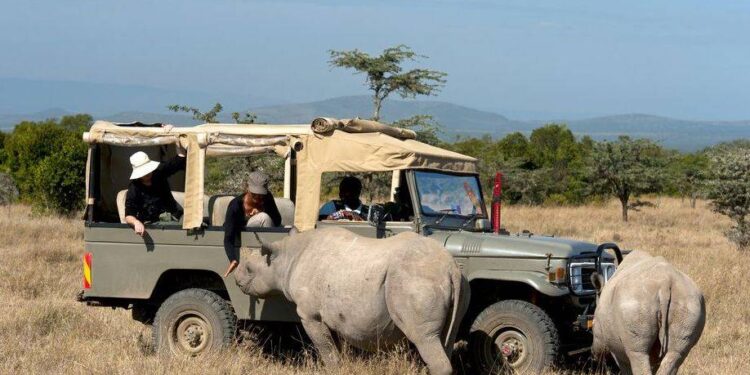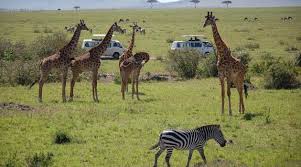Kenya’s luxury hospitality sector is recording strong investment growth, with industry analysts projecting continued expansion driven by a 35 percent increase in international visitor arrivals, a stable macroeconomic climate, and rising local demand. As the country prepares to host the East Africa Property Investment (EAPI) Summit in May 2025, more than 450 investors and real estate professionals are expected to explore new opportunities in high-end tourism, particularly in Nairobi and the Masai Mara region.
According to leading voices in the industry, Kenya’s unique blend of natural beauty, improved infrastructure, and economic resilience is drawing strong interest from both regional and international investors. Bani Haddad, Founder and Managing Director of Aleph Hospitality, captures the mood well: “Kenya presents a great opportunity for hospitality investment due to its unique combination of untapped potential, economic stability, strategic location, and government incentives.” He also highlighted a 35 percent increase in international arrivals and growing domestic demand, reflecting a surge in middle-class spending power. These trends suggest that the demand for premium hospitality services is not only strong today, but will continue to grow for years to come.
At the heart of this expansion is the rising profile of Nairobi and the enduring global appeal of the Masai Mara. Nairobi is fast cementing its status as a premier economic and transit hub for the continent. Its urban development and central location make it ideal for corporate and leisure travel alike. Meanwhile, the Masai Mara’s iconic landscapes and wildlife continue to draw tourists from around the world, enhancing Kenya’s reputation as a top-tier safari destination. According to Fiona Craw, Vice President of the Hotels & Hospitality Group at JLL Africa, Nairobi and the Masai Mara remain the focal points of investor interest, driven by consistent demand across corporate, leisure, MICE (Meetings, Incentives, Conferences, and Exhibitions), and government travel segments.
Much of this demand is being reinforced by deliberate investment in infrastructure. The government’s push to upgrade transportation, particularly air travel, is a significant enabler. Mark Dunford, CEO of Knight Frank Kenya, emphasizes the importance of improved air connectivity in sustaining tourism growth. He points to Jomo Kenyatta International Airport (JKIA) as a vital regional hub. Maintaining and expanding its capacity through additional long-haul routes and upgrading domestic airports will play a central role in maintaining the upward trajectory.
Kenya’s evolving infrastructure is also laying the foundation for its emergence as a MICE powerhouse. The development of modern conference facilities and high-end accommodations in Nairobi is transforming the capital into a destination of choice for international business events. Craw notes that this strategic positioning is already stimulating demand for sophisticated hospitality offerings, and the pace of growth suggests that Kenya will become increasingly competitive in the MICE market, not only in Africa but globally.
This luxury hospitality boom is not only about international visitors or large-scale events. It has important implications for the Kenyan people. For one, the sector creates a wide range of employment opportunities — from hotel staff and tour guides to construction workers and supply chain vendors. The steady influx of investment also contributes to skills development, technology transfer, and the strengthening of local entrepreneurship through linkages with local producers and service providers. In the short term, this translates to job creation and income for thousands of Kenyans. In the long term, it builds capacity in critical sectors and supports sustainable economic growth.
Moreover, as Kenya becomes more attractive to high-end travelers, the revenue generated from tourism helps finance conservation initiatives and supports communities in and around wildlife reserves. The focus on quality rather than volume also reduces the pressure on fragile ecosystems, promoting a more sustainable approach to tourism that benefits both the environment and local livelihoods.
Nonetheless, experts caution that the sector must confront and overcome some pressing challenges. Haddad points out that the industry is not immune to broader economic and geopolitical pressures. Security concerns, regulatory complexities, supply chain disruptions, and human resource limitations are all real issues that need addressing. High financing costs and inflation-driven expenses also place pressure on operators, especially in a competitive global market.
Despite these obstacles, confidence in Kenya’s hospitality future remains robust. The upcoming East Africa Property Investment (EAPI) Summit, set for May 7-8, 2025, in Nairobi, will convene more than 450 investors, developers, and real estate professionals. This high-level gathering will provide a platform to unlock new investment streams, not only in Kenya but also in neighboring countries such as Tanzania, Uganda, Rwanda, and Ethiopia — all of which are showing encouraging signs of economic recovery and political stability.
As Kenya navigates its path forward, it is increasingly clear that the luxury hospitality sector is not just a bright spot in the national economy, but a pillar of long-term transformation. The sector’s ability to attract capital, create jobs, and showcase the country’s best attributes makes it a cornerstone of Kenya’s development narrative. With smart policy, strategic investment, and a commitment to sustainability, Kenya is poised to become a premier destination in global luxury tourism — delivering prosperity and pride to its people along the way.
Would you like this article formatted for publication or adapted into a shorter briefing as well?
Kenya has once again made global headlines by being ranked the fourth best-performing tourism destination in Africa. This remarkable recognition came during the 2nd UN Tourism Africa and...
Read moreDetails









